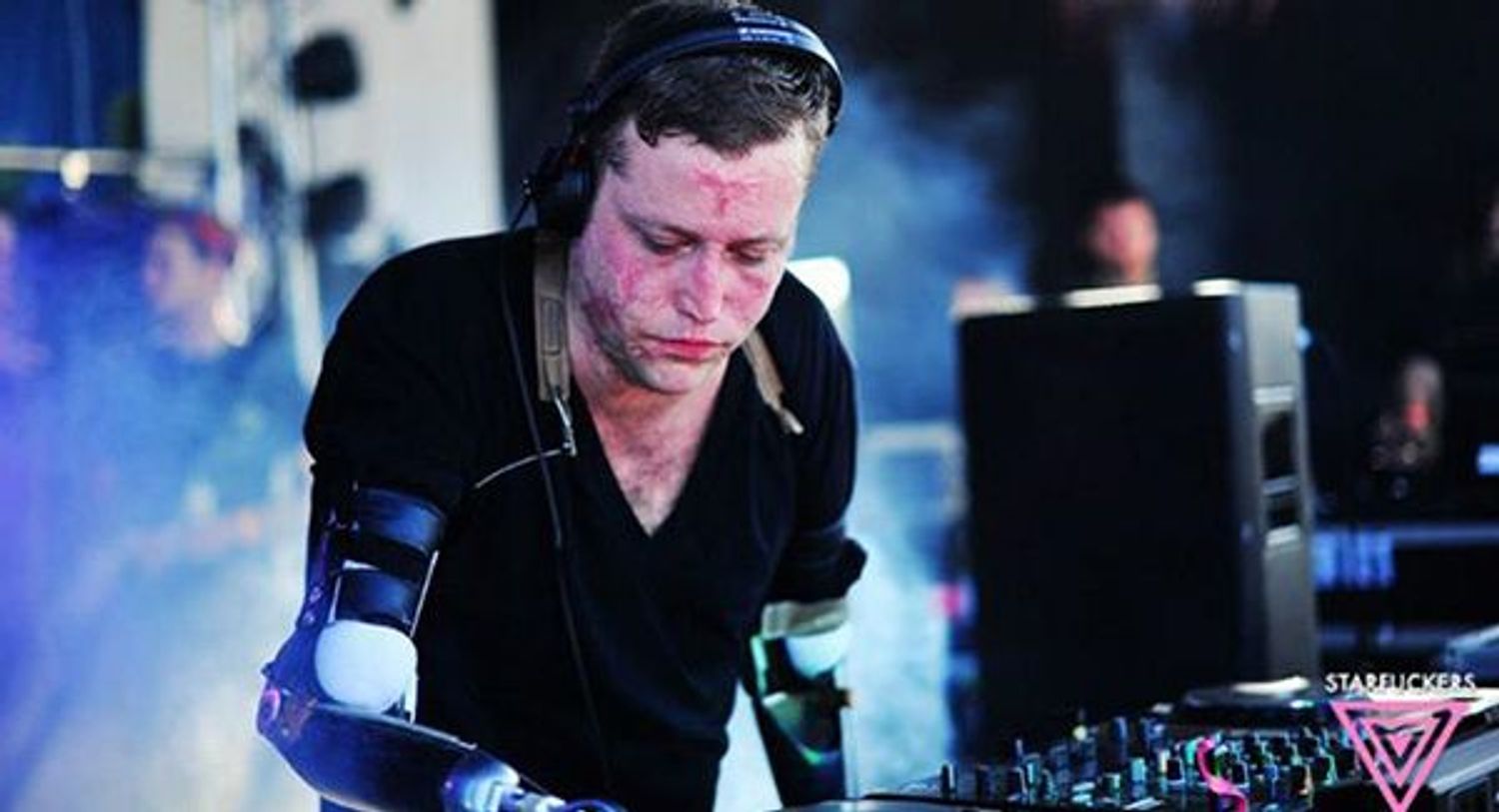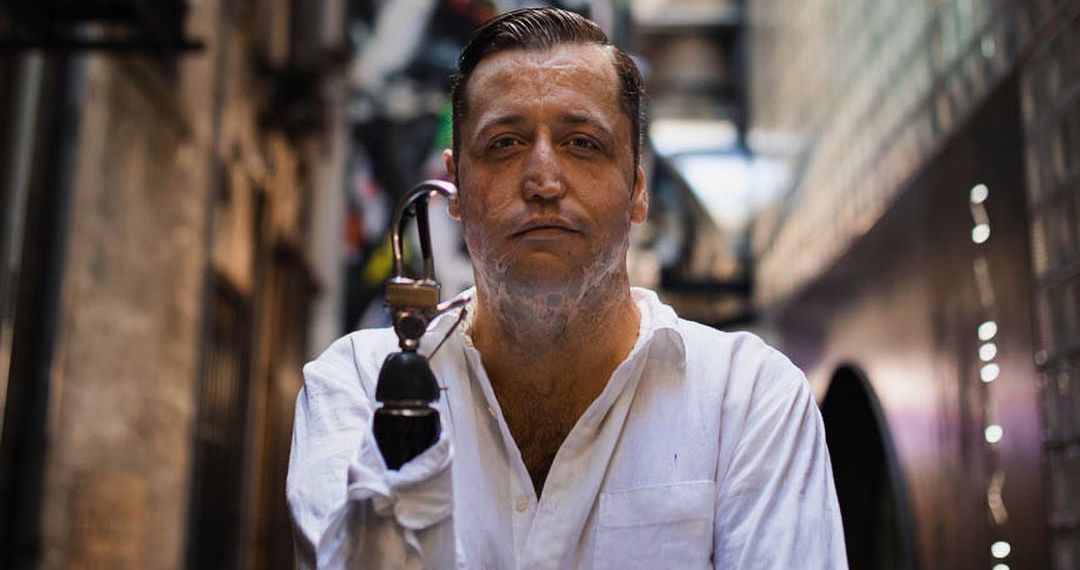Tom Nash, aka DJ Hookie, is a DJ of international repute due to his skills on the decks. Unlike other top DJs, however, Nash doesn’t have hands – he uses hooks to play music and perform other tasks, including lighting cigarettes.
In one’s mind, it might seem more difficult for a person to use hooks rather than prosthetic arms, for instance – but after watching and listening to DJ Hookie in action, all doubts melt away with the rhythm of the beat.
Doctors amputated Hookie’s limbs following a meningococcal septicemia infection
Aged 19, Tom Nash passed out one evening and woke up in a pool of his blood. Nash and his sister thought it was a case of flu on steroids, but it turned out to be a meningococcal septicemia infection.
Meningococcal septicemia is caused by the bacteria Neisseria meningitides. Some people with the virus don’t develop infections, but others like Tom Nash develop severe infections. The disease responds to antibiotics if diagnosed early.
However, the symptoms mimic other conditions – for instance, Tom thought he had flu – leading to a late diagnosis when the infection has caused severe damage. About 20% of people who survive severe meningococcal septicemia have long-term complications, including losing one or more limbs.
After arriving at the hospital, Nash went into a coma for two weeks. After waking up, the doctor told him he would die if he decided to keep his limbs. Nash told Story Trender:
“The doctor told me I was over 18 and I could make my own decisions, so he gave me two options, the first was that my arms would be amputated, and I’d live with prosthetics. I told him I didn’t like that option, so he told me instead I could keep my arms and die, which just put everything into perspective.”
His limbs had to go as they’d developed gangrene. “I was moved to different hospitals; my legs went first and soon after my arms were gone too because the illness causes gangrene,” Nash added.
Eighteen months after visiting the hospital for what he suspected was the flu, Tom Nash left as a quadruple amputee.
Tom Nash got into DJing because he didn’t want to give up his music dream

Nash said that he had a tougher time accepting the loss of his arms than the amputation of his legs. He started learning how to use prosthetic arms using hooks and decided against taking the hooks off. Nash explained:
“I really liked the look of them, they looked pretty badass. I can do things with my hooks that people with $200,000 Bionic arms can’t, I can pretty much do most things I attempt.”
Nash told Sky News he relaunched his music career by relearning how to play the guitar. He raised the action on the instrument and added thicker strings.
“I was never going to be Jimi Hendrix and chances are I was never going to be Jimi Hendrix anyway,” Nash said. “It was more a case of being able to have that outlet, being able to write music.”
Nash became DJ Hookie after opening a nightclub alongside his friend. The pair didn’t have the money to hire a DJ, so he picked up the mantle. “It launched my entire career,” DJ Hookie said.
Tom quit studying science and psychology to focus on writing dance music. “It can free you up to be more creative,” DJ Hookie told The Sydney Morning Herald. “When you are playing a great set it is an untouchable experience. Music is a release. It makes me feel comfortable being alive.”
DJ Hookie prefers questions rather than pointed fingers and rapidly averted stares

“I prefer them to ask questions, rather than not to ask questions,” DJ Hookie told Sky News. DJ Hookie draws plenty of attention, which is understandable because, you know, he has hooks for arms. If you come across DJ Hookie, he prefers you ask questions rather than point or avert your stare.
DJ Hookie doesn’t particularly enjoy chatting but prefers it to dealing with gazes and pointed fingers. Tom said:
“I think by telling children not to point and ask, we create a culture that grows up thinking they can’t. The only way to learn about things is to ask questions, if we block that impulse, we set ourselves up to misunderstand, which as a society is the opposite of what we should be aiming for.”
An unfortunate consequence of people refusing to engage DJ Hookie is they assume he has a miserable life when the truth is the exact opposite. DJ Hookie told The Sydney Morning Herald:
“I probably would have made that assumption about people in wheelchairs before. Now a taxi driver will say to me ‘Oh fuck, your life must be horrible’. But I am happier than I have ever been. If you were to talk to me, maybe you would understand.”
DJ Hookie doesn’t consider himself a motivational speaker
DJ Hookie has an inspirational story, which he shares with people when given a chance, but he doesn’t consider himself a motivational speaker. He told Sky News that he tells his story to make people think more about their lives rather than to motivate them.
Nash told The Sydney Morning Herald that he hates the ‘you can do anything’ message spread by Paralympians: “I dislike people who tow the company line and disabled people are notorious for this. ‘You can do anything’ and all that sort of shit, it’s not true. You can’t do anything.”
He spreads the positivity message but implores people to be realistic. “I could be a demotivational speaker,” he said. DJ Hookie continued: “If somebody saw what I had been through and the fact I was positive about it, I would rather them think: ‘Yeah, human beings can get through shit like this and so can I.’”
DJ Hookie hopes to contribute more in the field of innovation rather than motivation. In November 2021, he spoke to Forbes about the unintended yet welcome consequences of innovations meant to help people with disabilities. DJ Hookie told the outlet:
“Consider text to speech or speech to text, which was initially designed for people with disabilities. Initially expensive with access to a limited few, they became disruptive when a wider population discovered their usefulness. Now we have Alexa and Siri who make everyone’s lives easier.”